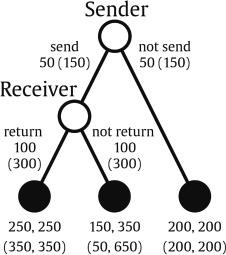Religion,discrimination and trust across three cultures |
| |
| Affiliation: | 1. Centre for Research in the Behavioural Sciences, Nottingham University Business School, University of Nottingham, Jubilee Campus, Wollaton Road, Nottingham NG8 1BB, United Kingdom;2. Centre for Decision Research and Experimental Economics, Nottingham School of Economics, University of Nottingham, University Park Nottingham NG7 2RD, United Kingdom;3. IZA Bonn, Germany;4. CESifo, Munich, Germany;5. Behavioural Business Lab, School of Economics, Finance and Marketing, RMIT University, 445 Swanston Street, Melbourne, Victoria 3000, Australia;1. Centre for Research in the Behavioural Sciences, Nottingham University Business School, University of Nottingham, Jubilee Campus, Wollaton Road, Nottingham NG8 1BB, United Kingdom;2. Centre for Decision Research and Experimental Economics, Nottingham School of Economics, University of Nottingham, University Park Nottingham NG7 2RD, United Kingdom;3. IZA Bonn, Germany;4. CESifo, Munich, Germany;5. Behavioural Business Lab, School of Economics, Finance and Marketing, RMIT University, 445 Swanston Street, Melbourne, Victoria 3000, Australia |
| |
| Abstract: | 
We propose that religion impacts trust and trustworthiness in ways that depend on how individuals are socially identified and connected. Religiosity and religious affiliation may serve as markers for statistical discrimination. Further, affiliation to the same religion may enhance group identity, or affiliation irrespective of creed may lend social identity, and in turn induce taste-based discrimination. Religiosity may also relate to general prejudice. We test these hypotheses across three culturally diverse countries. Participants׳ willingness to discriminate, beliefs of how trustworthy or trusting others are, as well as actual trust and trustworthiness are measured incentive compatibly. We find that interpersonal similarity in religiosity and affiliation promote trust through beliefs of reciprocity. Religious participants also believe that those belonging to some faith are trustworthier, but invest more trust only in those of the same religion—religiosity amplifies this effect. Across non-religious categories, whereas more religious participants are more willing to discriminate, less religious participants are as likely to display group biases. |
| |
| Keywords: | Religiosity Connectedness Discrimination Trust Experiment |
| 本文献已被 ScienceDirect 等数据库收录! |
|

